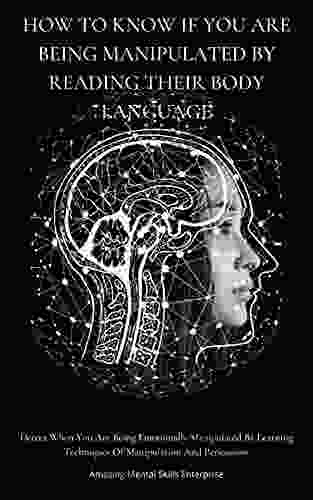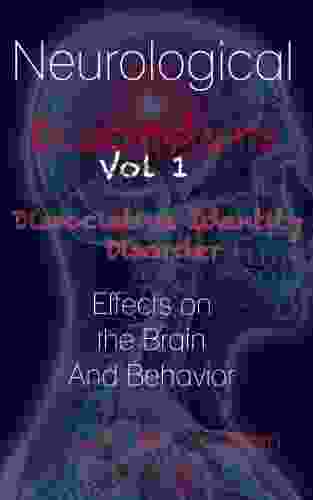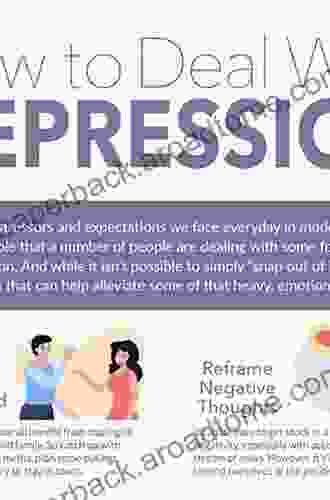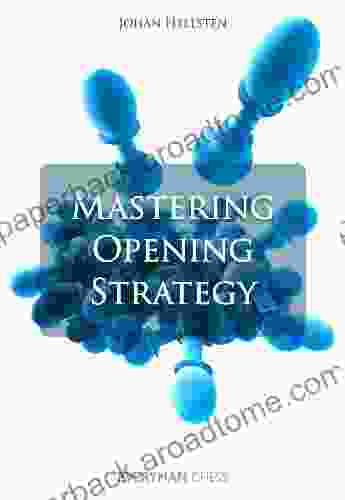Depression: The Silent Killer | Your Guide to Handling Depression

Unveiling the Hidden Ravages of Depression
Depression, a pervasive mental health condition, often operates silently, casting a long shadow over individuals' lives. Its insidious grip can manifest in a myriad of ways, from persistent sadness and lethargy to anhedonia (loss of interest or pleasure in activities). Depression is an all-too-common affliction, affecting millions worldwide, and can severely impair daily functioning, relationships, and overall well-being.
5 out of 5
| Language | : | English |
| File size | : | 27 KB |
| Text-to-Speech | : | Enabled |
| Screen Reader | : | Supported |
| Enhanced typesetting | : | Enabled |
| Print length | : | 12 pages |

Understanding the Spectrum of Depression
Depression manifests in various forms, each with its unique characteristics. These include:
- Major Depressive DisFree Download (MDD): A severe form of depression characterized by intense sadness, loss of interest, and changes in sleep and appetite patterns.
- Persistent Depressive DisFree Download (PDD): A chronic form of depression that lasts for at least two years and can significantly impact daily life.
- Seasonal Affective DisFree Download (SAD): A type of depression that occurs during specific seasons, typically winter. Symptoms may include fatigue, oversleeping, and cravings for carbohydrates.
- Postpartum Depression: A form of depression that can develop after childbirth, often due to hormonal changes and the challenges of new parenthood.
Breaking Free from the Shadows: Strategies for Handling Depression
Confronting and overcoming depression requires a multifaceted approach that encompasses both professional support and self-care strategies. Here are some effective ways to manage depression:
1. Seeking Professional Help
Reaching out to a mental health professional, such as a therapist or psychiatrist, is crucial for initiating the healing journey. They can provide a safe and supportive space to discuss your experiences, develop personalized treatment plans, and explore underlying causes.
2. Medication Management
In some cases, medication can play a significant role in managing depression. Antidepressants can help regulate neurotransmitter levels in the brain, alleviating symptoms such as sadness, anxiety, and fatigue.
3. Cognitive Behavioral Therapy (CBT)
CBT is a type of therapy that focuses on identifying and challenging negative thoughts and behaviors that contribute to depression. By reframing cognitive distortions and developing coping mechanisms, CBT empowers individuals to break free from self-defeating patterns.
4. Mindfulness and Meditation
Mindfulness practices, such as meditation and deep breathing, have been shown to reduce stress, improve mood, and enhance emotional regulation. By cultivating present-moment awareness, individuals can disconnect from ruminative thoughts and cultivate a sense of inner peace.
5. Lifestyle Changes
Lifestyle modifications, such as engaging in regular exercise, maintaining a healthy diet, and getting enough sleep, can significantly impact depression symptoms. Exercise releases endorphins, which have mood-boosting effects, while a nutritious diet provides essential nutrients for optimal brain function.
Hope for the Future: Recovery and Resilience
Overcoming depression is a journey that requires patience, perseverance, and unwavering belief in oneself. While challenges may arise along the way, recovery is possible with the right support and self-care strategies. By embracing a growth mindset, learning from setbacks, and cultivating meaningful connections, individuals can build resilience and reclaim their well-being.
Remember, you are not alone in this battle. Many resources and support groups are available to provide guidance and encouragement. Reach out to loved ones, connect with mental health professionals, and explore online communities where you can share experiences and find solace.
Depression is a formidable challenge, but it can be overcome with the right tools and support. By understanding the nature of depression, seeking professional help, and implementing self-care strategies, individuals can break free from its grip and reclaim their mental health. This guide serves as a beacon of hope, providing a roadmap to recovery and empowering you to navigate the complexities of depression. Remember, there is light at the end of the tunnel, and with determination and self-belief, you can emerge from the shadows of depression and embrace a life filled with purpose and fulfillment.
5 out of 5
| Language | : | English |
| File size | : | 27 KB |
| Text-to-Speech | : | Enabled |
| Screen Reader | : | Supported |
| Enhanced typesetting | : | Enabled |
| Print length | : | 12 pages |
Do you want to contribute by writing guest posts on this blog?
Please contact us and send us a resume of previous articles that you have written.
Light bulbAdvertise smarter! Our strategic ad space ensures maximum exposure. Reserve your spot today!

 Cody RussellUnlock the Future of Wearable Robotics: Dive into the Proceedings of the 5th...
Cody RussellUnlock the Future of Wearable Robotics: Dive into the Proceedings of the 5th... Ryūnosuke AkutagawaFollow ·9.7k
Ryūnosuke AkutagawaFollow ·9.7k Craig CarterFollow ·17.3k
Craig CarterFollow ·17.3k Derrick HughesFollow ·2.8k
Derrick HughesFollow ·2.8k Edwin BlairFollow ·3.4k
Edwin BlairFollow ·3.4k Reginald CoxFollow ·18.9k
Reginald CoxFollow ·18.9k Jacob FosterFollow ·18.5k
Jacob FosterFollow ·18.5k Scott ParkerFollow ·16.6k
Scott ParkerFollow ·16.6k Chinua AchebeFollow ·11.7k
Chinua AchebeFollow ·11.7k

 Isaiah Powell
Isaiah PowellWisconsin Clinic Pilots Mobile Crisis Response System For...
MADISON, Wis. - A new mobile crisis...

 Daniel Knight
Daniel KnightUnleash Your Creativity: A Masterclass in Fabulous Nail...
Embellish Your Fingertips with Captivating...

 Clark Campbell
Clark CampbellDetect When You Are Being Emotionally Manipulated By...
Emotional manipulation is a subtle but...

 Eli Brooks
Eli BrooksNeurological Disorders Papers: Dissociative Identity...
What is Dissociative...

 Ricky Bell
Ricky BellAn Introduction to Islam for Jews: Unveiling the Tapestry...
A Bridge of Understanding: Exploring Islam for...

 Octavio Paz
Octavio PazAchieving Longevity: The Complete Step-by-Step Guide to...
**** In the ever-evolving landscape of health...
5 out of 5
| Language | : | English |
| File size | : | 27 KB |
| Text-to-Speech | : | Enabled |
| Screen Reader | : | Supported |
| Enhanced typesetting | : | Enabled |
| Print length | : | 12 pages |
















































